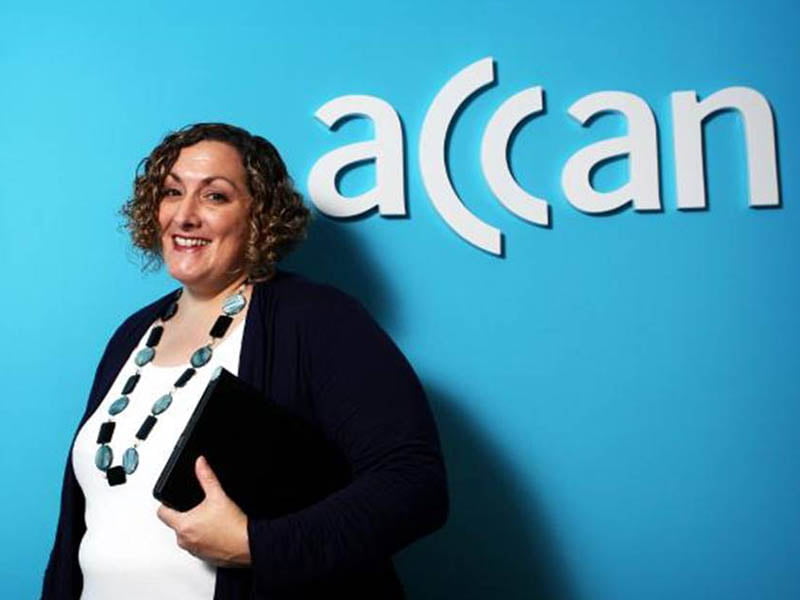The government has commenced a public review of telecommunications consumer representation, and research on telecom-related issues being carried out and funded under section 593 of the Telecommunications Act 1997.
An issues paper provides the scope of the review and calls for submissions by 25 November 2016 on the future approach to consumer representation, the independent grants program and research, and whether any other activities should be funded in addition to – or to the detriment of – the existing activities funded by an industry levy.
Under existing arrangements, the federal government provides funding of $2 million annually, including $250,000 for telecommunications consumer-related research, to the Australian Communications Consumer Action Network (ACCAN), as the peak body representing consumers of telecommunication services.

The $2 million (CPI indexed) financial assistance grant made to ACCAN commenced in 2009-10 and continues to May 2017. In the 2015-2016 financial year, the funding was $2,196,000.
“The grant enables ACCAN to conduct activities necessary for an effective peak communications consumer advocate, including representation, research, consumer education and participation in self-regulatory activities,” the paper says.
“The grant also allows ACCAN to operate an annual competitive Independent Grants Scheme for individuals and organisations to undertake research or representation projects in the interest of the telecommunication consumer.”
The ACCAN CEO Teresa Corbin told InnovationAus.com that ACCAN “welcomes the review as the current funding contract is nearing an end and the review will provide an opportunity for outcomes to be measured and to reflect on ACCAN’s success over the past eight years.”
In 2015, Ms Corbin was awarded the Charles Todd medal from the Telecommunications Association for distinguished service to the industry.
The Communications Minister Mitch Fifield stated that “the Government is committed to ensuring effective representation for consumers of telecommunications services in an evolving telecommunications market.”
“Any changes made as a result of the review will be evaluated in terms of whether they provide better outcomes for Australian consumers,” Senator Fifield said.
Telecommunications is now an essential service as we see it impacting on every aspect of our daily lives.
To represent consumer interests as technologies and markets evolve is a daunting task, one that ACCAN has carried out remarkably well, given the level of funding that it receives from government and the 100-plus member organisations and individuals that it represents.
“Between 2012 and 2015, ACCAN represented telecommunications consumers on 36 government, industry and member committees, including the Australian Competition and Consumer Commission (ACCC) Consumer Consultative Committee, the ACMA [Australian Communications and Media Authority] Consumer Consultative Forum, the DoCA [Department of Communications and the Arts] Stay Safe Online Week Steering Group, the NBN Co Public Information on Migration (PIM) Consumer Working Group, the Telstra CEO and Consumer Roundtable and Communications Alliance Working Groups.”
“During the same period, ACCAN also made submissions on behalf of consumers to over 100 inquiries and consultations, engaged with Government and industry on over 30 issues and developed 11 standalone consumer policy positions.”
The review issues paper identifies that the “diverse interests represented by ACCAN” means that, on occasion, it is not able to “develop a united position on issues to accurately represent the breadth of consumer interests”.
What this means is that government policy may, at times, benefit some consumers and not others, and it would be wrong for ACCAN to adopt a position other than to highlight to government that there is a need to work harder to find a more appropriate policy, one that can generally be supported by most consumers.
The example provided in the review issues paper was ACCAN’s decision, in 2012, to withhold support for the Telecommunications Consumer Protections (TCP) Code because ACCAN believed the “revised Telecommunications Consumer Protection Code does not meet the ACMA’s requirements for advertising pre-sale information and expenditure management. Of the other three areas, it says none have been implemented in full.”
In 2012, Ms Corbin said “the TCP Code doesn’t meet the ACMA’s demands in terms of either advertising or spend management. Specifically, it doesn’t address requirements regarding advertising and doesn’t give customers the ability to properly monitor their usage and avoid bill shock.”
“Despite mutual goodwill and a great deal of effort from all those involved, ultimately, our role is to represent all Australian telecommunications customers. We don’t believe this Code is going to be strong enough to transform the customer experience, produce clear advertising or prevent bill shock.”
ACCAN was correct because the ACMA and the ACCC also did not support the TCP as it stood, so the government refined the TCP before it was published and this led to a stronger code. Other problems with the TCP, identified by ACCAN in 2012, still exist today.
Ms Corbin told InnovationAus.com “the biggest difficulty with the TCP today is enforcement and the regulators do not have adequate powers to enforce the code. The regulators rely on industry culture and goodwill and whilst this may work with larger telcos it sometimes does not work with newer services or fly by night providers.”
By including this example, the issues paper inadvertently provides a positive example of ACCAN’s consumer outcomes-focused consultation and review process, and that ACCAN is prepared to make the hard decision when necessary.
ACCAN faces a daunting task, at times, as the Australian telecommunications market is not exactly straightforward. How do you adequately represent consumer interests when government legislation and regulation has created an environment where the industry is dominated by an incumbent telco and there are a raft of multi-nationals providing over the top services at rip-off prices (and have a corporate culture that appears to include the ethos that taxation is something that only consumers pay.)
How can ACCAN argue for improved consumer outcomes in such an environment?
It does so using evidence-based research and policy development to ensure that ACCAN independently represents consumer interests.
The review issues paper floats the idea that alternative activities could be funded in lieu of the funding provided to ACCAN. The suggestion that funding could be diverted from ACCAN to other consumer representative groups, companies or to government departments and agencies – including the Department of Communications, and the ACMA – is hypothetical at best.
The independent telecommunications research grants scheme administered by ACCAN has commissioned over 50 research projects covering a diverse range of telecommunications consumer related topics.
As we become more dependent on telecommunications in every aspect of our daily lives, there is a need for increased consumer representation, particularly with the anticipated growth in network connected devices through the “Internet of Things”.
Now is not the time to be tinkering with how telecommunication consumer representation is provided when by any reasonable measure ACCAN is doing a sterling job.
ACCAN’s success justifies a further five-year funding cycle commencing in 2017.
The government review issues paper fails to ask the question “is the funding provided under section 593 adequate” and the only reasonable response would be that the next funding round should provide a significant increase to permit ACCAN to adequately meet the challenge of consumer representation at a time when telecommunications is undergoing such enormous changes and is increasingly impacting on every aspect of our daily lives.
Disclosure: In 2013, Dr Mark Gregory was a co-recipient of an ACCAN Grant for the project titled Warrnambool Exchange Fire Consumer Impact Analysis.
Dr Mark Gregory is a Senior Lecturer in the School of Engineering at RMIT University
Do you know more? Contact James Riley via Email.

